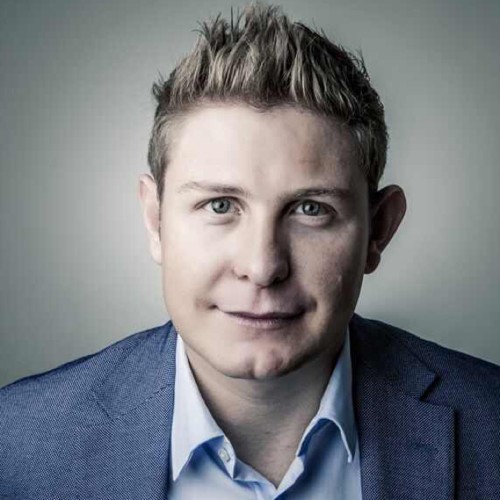Emerging from the crisis – Building a procurement team for the future
As we enter the next phase of this crisis, many organisations are bracing themselves for a change in consumer behaviour. In every crisis, there are winners and losers. Some organisations have seen a rise in sales in certain foods, sports equipment and alcohol during the lockdown. E-commerce sales for many retailers have risen from 8%-13% since lockdown began, with basket sizes growing a third, yet for others, sales have declined with businesses seeing a severe change in consumer demand. As recently discussed in Ernst & Youngs report titled, ‘How COVID-19 is changing consumer behaviours’, “Consumer-facing companies urgently need to anticipate what kind of consumer is emerging, so they can make it through the current crisis and build the capabilities that future relevance will require.”
This claim was also supported by Accenture, who stated: “Consumers are more mindful of what they’re buying.” They go on to write, “The outbreak has pushed consumers out of their normal routines. Consumers are adopting new habits and behaviours that many anticipate will continue in the long term.”
For many executive teams, this unpredictability and future uncertainty is a cause of grave concern. Questions are being asked as to what their business now needs to look like, but more importantly if they have the right talent in place to respond to this.
In our latest instalment on emerging from the crisis, we spoke to Carel Aucamp, Group Head of Procurement for Next Generation Products at British American Tobacco (BAT). Whilst many organisations are now considering a change in their operating models, responding to a shift in consumer behaviour, this was something BAT recognised several years ago. The tobacco industry has undergone a monumental change in this last few years. Traditional combustible cigarettes were challenged in the market by e-cigarettes or vaping. This change in consumption behaviour created an enormous challenge to the industry and the people who worked within it. Tom spoke with Carel about this change and how he built a team which had the right talent to respond to it.

Carel Aucamp, Group Head of Procurement for Next Generation Products at British American Tobacco
Adapting to change
The tobacco industry is undergoing significant change. Over the last decade, there has been a major shift, from the consumption of traditional cigarettes to an emergence and rapid rise in the use of electronic devices or ‘e-cigarettes’. According to the World Health Organisation, the number of global smokers has declined since 2000 from 1.14bn smokers to approximately 1.1bn today. But the market of e-cigarettes has grown in terms of consumers, market worth, brands and flavours in meteoric fashion, with sales exceeding £1.3Bn in 2019.
Carel explains, “all businesses have change, often this is incremental with traditional improvement plans. For us, this was a huge step change and like for many big businesses, agile change did not come naturally. Our business had always looked at innovation with Next Generation Products (NGP), but now our landscape had changed, and we had to move from a business that had been one of the best in the tobacco industry, to having new ideas around how to satisfy customer moments.”
Last year, the BBC reported that the market is now worth $22.6bn. Future projections suggest the market’s value could range from $60bn- $85bn by 2025, with the USA, Japan and the UK being the largest consumer markets. What was once seen as a disruptive technology is now significantly changing the tobacco industry’s landscape.
“I joined the team in 2017 with the mandate, ‘build what we need’. There was lots of excitement around NGP and high performing talent wanted to be part of this journey – yet with so much focus on driving innovation and creating a new market, if we did not have the right talent, we would get caught out” says Carel.
Identifying the key skills
In many organisations, procurement is seen as a function that’s primary objectives are to deliver year-on-year savings and manage risk, a view supported by Deloitte’s 2019 Global Chief Procurement Officer survey, with results showing that these were the two main priorities for Global CPO’s over the next twelve months. Yet for BAT, it was imperative that the procurement function offered more and partnered with the business to fuel growth and drive innovation. Carel identified the key skills he looked for when building this new team:
” I didn’t try to re-invent procurement, but I did try to refocus it. It was important that we were seen as adding value, not support. We, of course, added value in our processes and controls, but it also needed to be from our strategy alignment. We needed to understand, how could procurement add value through innovation? How could we create fast movers and have agility, whilst understanding our scale of footprint?
It was essential that my team understood what value they could bring. Ideas, innovation, concepts and specifications all needed to be scalable. If the business saw innovation, my team needed to help scale that. We made it clear, that if we were being brought in to look at the contracts, then we had lost. We needed a team that could have greater influence, with a refocus on speed, risk and then cost.”
I asked Carel what characteristics he looked for from his high performing team?
“It was essential that my team understood the challenge and agreed on the cohesive strategy, i.e. create a vision people want to follow. Second, we had to build a team with clear roles and responsibilities and open and transparent communication – the right attitude of fight, not flight.
We had to adapt our approach to be rapid and agile whilst we created a true partnership with our R&D and Technical Operations stakeholders.
Once the right team was in place with high energy, I brought in structure and a new engagement model with the business to bring curiosity and passion. Above all in this changing environment, we had to create a team culture that could withstand – a culture of resilience – there have been failures, but learnings are what is the important aspect. The above resulted in trust with our stakeholders; they might not like everything we say, but they trust us. This created collaboration and broke down any siloed mentality.
A high performing team is a function that is focused, but with the flexibility to change if the outcome is more positive than a rigid process would allow. It is a team with trust and openness, which challenges the business in mature, but difficult conversations.”
Partnership approach
Many organisations are bracing themselves for the balance of responding to a change in consumer behaviour, whilst having to focus on cost reductions as we enter the next phase of this crisis. Carel discussed how his procurement function struck this delicately poised balance:
“We had to change the view of procurement, moving away from challenging costs to bringing forward options. We conducted total cost modelling and then empowered the business to make quick decisions, knowing what the cost impact was.
We built a team that was located close to our stakeholders and key markets, created a new supplier pool and, operate a 24-hour model across time zones. We had to change the mind-sets of our suppliers too. It is very difficult to find a supplier that can manage scale and innovation, so we had to truly understand who our key suppliers were and have strong relationships with them. That has been crucial during the pandemic, so many of our suppliers are in China and we have let them know that we are in this together with them.
Building for the future will not be easy, but it is rewarding to work with a partnership approach within and externally to build together.”
As we enter the next phase of this crisis, huge decisions are going to be made by organisations as they respond to a change in the consumer landscape. However, the success of any transformation will come down to the talent each business has to adapt to and lead this change. For many organisations, there has never been a more important time to invest in a function, clearly identifying the right skills and capabilities required of those within it.
At Berwick Partners we specialise in recruiting Procurement and Supply Chain leadership roles across all sectors.


